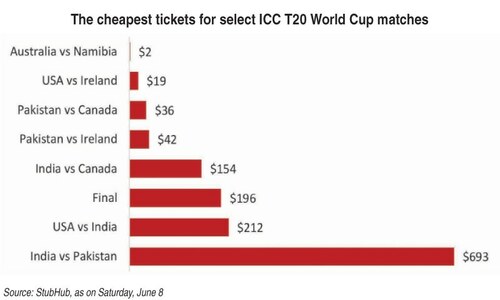RIO DE JANEIRO: Do you speak futebol? With the World Cup in full swing, there’s never been a better time to learn.
For Brazilians, football is a whole language. Being so creative with their feet forces them to be creative with their tongues, too, to conjure new words and phrases for techniques and styles of play they’ve perfected in making the English game their own.
Example: for Brazilians, a shot that rises sharply and then dips behind the goalkeeper into the net is a “folha seca” — a dry leaf. Very poetic. That Brazilians see Mother Nature’s handiwork in the languid, curvaceous up-then-down trajectory says a lot about how deeply they think about the game.
Didi, a World Cup winner with Brazil in 1958 and 1962, was famed for his dry leaf free kicks. The confounding, opposition-twisting dribbling technique of 1970 World Cup winner Rivelino became known as the “elastico”, which speaks for itself.
And the overhead “bicicleta” kick, so called because players look like they’re riding a bike upside down, is said to have been invented by Leonidas, a star of Brazil’s 1934 and 1938 squads.
Daniela Alfonsi, a director at the football museum in Sao Paulo, says Brazilians initially adopted English words when football first landed some 120 years ago, introduced by European-educated Brazilians, notably Charles Miller. So they would have said “goalkeeper” and “match” instead of “goleiro” and “partida” as they do now, she said.
But, quickly, “we invented our own words, Brazilian words,” she added. And then some. Dozens of words and phrases, some cheekily creative, like the best Brazilian players, others humorous, earthy, romantic and even cruel.
A clumsy defender is said to work on a farm, a “fazenda”. And when a goalkeeper fumbles or misses a crossed ball, he’s gone hunting for butterflies.
The ball — “bola” — is a feminine noun, reinforcing the idea it is “something you have to treat with care, with respect, like you treat a woman,” Alfonsi said.
(In German, a football, or “der fussball,” is masculine, which seems apt for Germany’s traditionally muscular style of play).
Goal-poachers who loiter in the penalty area are said to be “na banheira” — “in the bath” — relaxing and taking it easy while teammates run around. Brazil’s 1994 World Cup winner Romario or Italy’s Filippo Inzaghi were bathers.
And Pele was no mere “jogador” — which means player — he was a “craque,” a crack, a genius.
In Portugal, Brazil’s former colonial ruler, football fans are “adeptos”, meaning they’ve adopted or become hooked on a team.
But in Brazilian Portuguese, the word is more visceral. “Torcida” comes from the verb “to twist” and evokes how football puts fans through the wringer.
“The idea [is] that you have to squeeze your body, you suffer,” Alfonsi explained. “It’s very emotional.” Because Brazilians live, breathe and dream football, terminology and history from the pitch bleeds into their everyday language, too.
Even Brazilians who aren’t fans of football still speak futebol. Example: when someone screws up, Brazilians might say that person “pisou na bola” — stamped on the ball — which, of course, is a big faux pas. “It’s ugly,” said Alfonsi. “It means that you don’t know how to treat the ball, because all Brazilians have to treat the ball in a pleasing way. So if you don’t treat the ball in a beautiful way, you pisa na bola — you stamp on the ball.”
But a kid who aces his school exams could be said to have scored a “golao” — a beautiful goal, which for Brazilians is the only type really worth scoring. The American equivalent might be a slam-dunk. Brits might say an absolute belter.
Finally, if you want Brazilians to sympathise when your heart is broken or you suffer personal disaster, tell them you’ve had a “Maracanazo”.
These should catch on, because it refers to Brazilian football’s darkest day: the 2-1 defeat to Uruguay in Maracana Stadium in 1950 that cost Brazil the World Cup, traumatising the nation.
Brazilians hope this World Cup will end with a victory to heal that scar. “Of course, we’ve had a lot of disasters. Violence, all kinds of disasters: floods, economic disasters, educational disasters,” Alfonsi said. But “when we lose something that is so important to you, it’s a ‘Maracanazo.’” — AP
Published in Dawn, June 19th, 2014











































